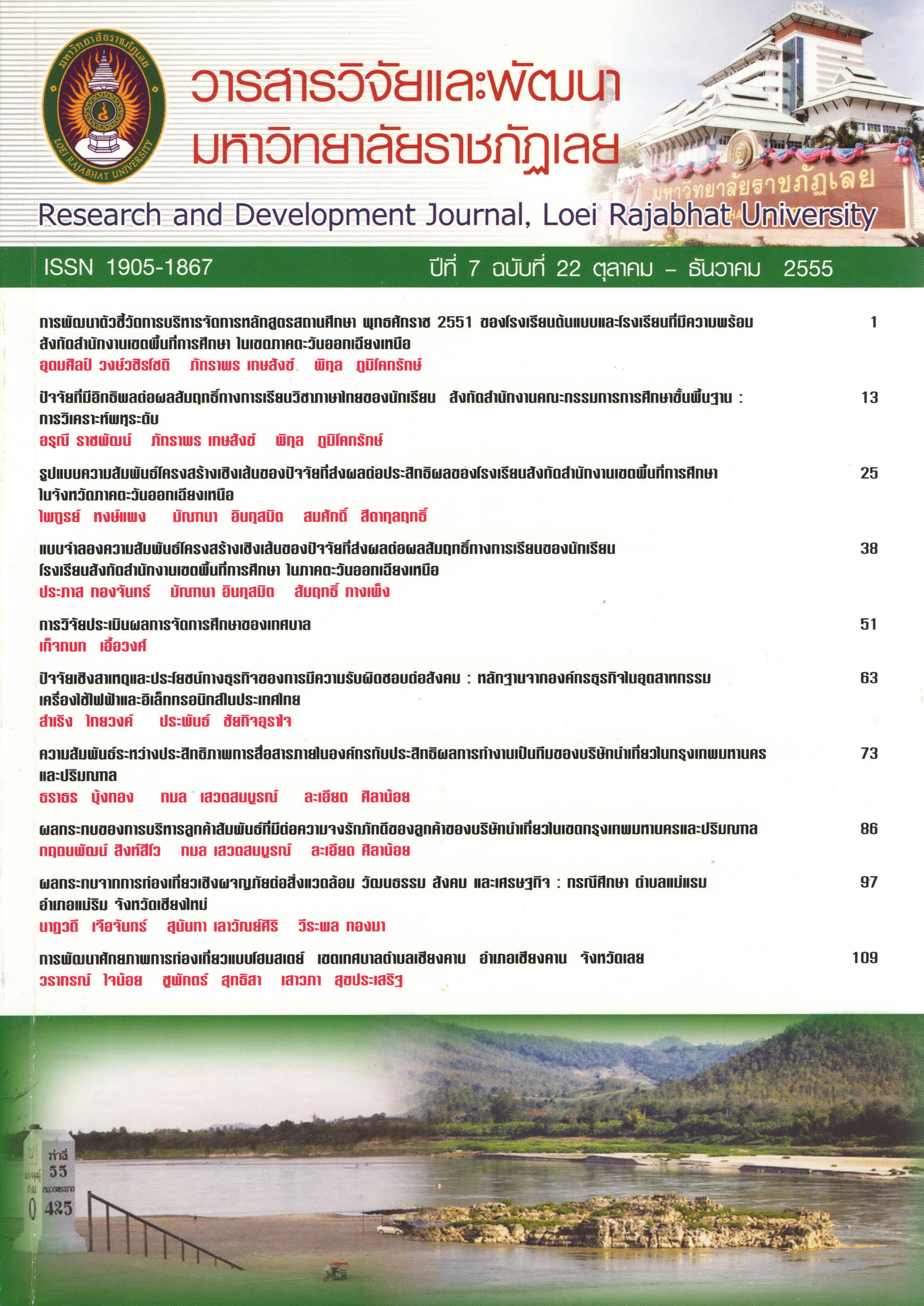ปัจจัยเชิงสาเหตุและประโยชน์ทางธุรกิจของการมีความรับผิดชอบต่อสังคม: หลักฐานจากองค์กรธุรกิจในอุตสาหกรรมเครื่องใช้ไฟฟ้าและอิเล็กทรอนิกส์ในประเทศไทย
Keywords:
ความรับผิดชอบต่อสังคม, ทุนองค์กร, ผลการดำเนินงานขององค์กร, corporate social responsibility, organizational capital, corporate performanceAbstract
This research aims to study the determinants and business benefits of corporate social responsibilities. A total of 476 corporations in the electrical and electronic industry were selected into the sample. Stratified random sampling technique was applied to select the sample. Questionnaire survey was used to collect data and structural equation modeling was used to test hypotheses. The results of research could be summarized as follows. 1. Clan culture, adhocracy culture, hierarchical culture, transformational leadership and knowledge distribution had positive direct effect on employee responsibility while employee responsibility had positive direct effect on customer acquisition, productivity, organizational citizenship behavior and employee retention. Clan culture, market culture, transformational leadership and knowledge acquisition had positive direct effect on customer responsibility while customer responsibility had positive direct effect on product innovation. Clan culture, hierarchical culture, market culture, and transformational leadership had positive direct effect on supplier responsibility while supplier responsibility had positive direct effect on customer loyalty and organizational citizenship behavior. Clan culture, transactional leadership and organizational memory had positive direct effect on shareholder responsibility but transformational leadership had negative direct effect on shareholder responsibility while shareholder responsibility had positive direct effect on profitability but had negative direct effect on productivity. Market culture, knowledge acquisition and knowledge distribution had positive direct effect on community responsibility while community responsibility had no direct effect on corporate performances. Adhocracy culture, knowledge interpretation and organizational memory had direct positive effect on environmental responsibility while environmental responsibility had positive direct effect on productivity. The research results, in addition, found that employee responsibility had positive indirect effect via customer acquisition and productivity on profitability, supplier responsibility had positive indirect effect via customer loyalty on profitability, shareholder responsibility had negative indirect effect via productivity on profitability and environmental responsibility had positive indirect effect via productivity on profitability.
Downloads
Published
How to Cite
Issue
Section
License
ข้อความที่ปรากฎในวารสารฉบับนี้เป็นความคิดเห็นของผู้เขียนแต่ละท่าน สถาบันวิจัยและพัฒนา มหาวิทยาลัยราชภัฏเลย และกองบรรณาธิการ ไม่จำเป็นต้องเห็นด้วยและไม่มีส่วนรับผิดชอบใดๆ
สถาบันวิจัยและพัฒนา มหาวิทยาลัยราชภัฏเลย ขอให้ผู้อ่านอ้างอิงในกรณีที่ท่านคัดลอกเนื้อหาบทความในวารสารฉบับนี้






